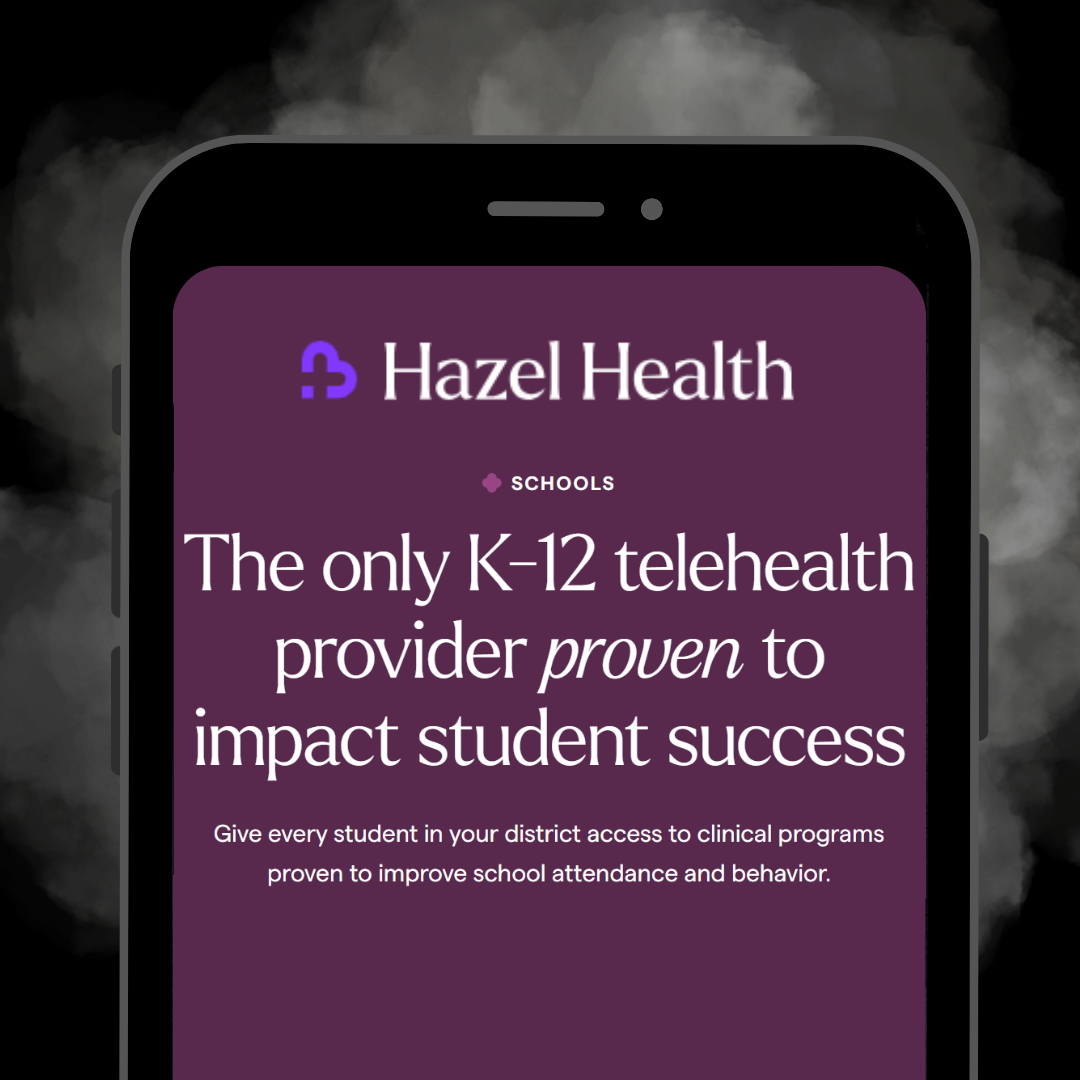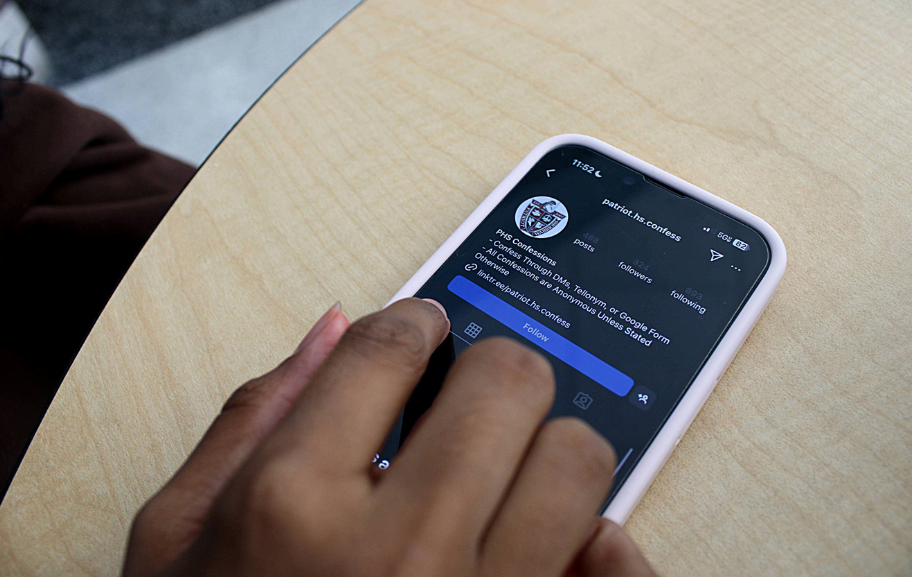Anxiety, depression, emotional burden – these are feelings no adolescent should go through. Unfortunately, and especially increasingly in relation to the past, this seems to be the new normal for teenagers across the United States. With nearly 40% of American teenagers reporting constant emotional distress in 2025, it’s no shock that high school students are desperate for help. This is where Hazel Health comes in.
Hazel Health, a telehealth service offered to K-12 students, has been implemented in Prince William County Schools this year. For no cost, students can participate in a 45-60 minute therapy appointment with a licensed therapist.
Multiple Hazel Health case studies show data regarding the program, such as 75% of students reporting falling into a lower level of anxiety and depression severity and 91% of severely absent students improving attendance following therapy sessions.
Michelle Mahoney, Licensed Clinical Social Worker and Patriot High School Social Worker, appreciates the idea of Hazel Health. “I think the county’s intention in implementing [Hazel Health] was to respond to an increased need in mental health services countywide for students… since Covid, that need has increased, but unfortunately the access to resources in the community has decreased. I think the county has been trying to meet the mental health needs of students without it being a burden on the family since there is no cost.”
Steve Gatland, the Hazel Health District Partnership Lead, works on developing and expanding relationships between school districts and Hazel Health. When asked about the approach to therapy that Hazel utilizes, he says, “We’re looking to work with students that have what we call emerging symptoms. They’re just starting to feel a little bit anxious or a little bit sad, and we’re trying to intersect with those students at the emerging stages of these [negative feelings] so that we can get them some help and some guidance on how to manage emotions and manage these feelings… we’re trying to teach students coping skills to manage their emotions and self-regulate.”
Hazel Health also uses cognitive behavioral therapy, or CBT, to help treat students. CBT is an effective mode of therapy for the treatment of many mental health conditions, such as depression, anxiety, eating disorders, anger problems and more. This directly aligns with Hazel Health as, according to Gatland, the most common reasons that students take part in the telehealth service is mainly attributed to feelings of anxiety, sadness, and withdrawal as well as struggling in school and challenges with socializing. Cognitive behavioral therapy is based on treating unhealthy thoughts and behavior, as well as gaining coping, calming and problem-solving skills.
The introduction of Hazel Health begs the question of whether or not guidance counselors are needed for specific emotional struggles. However, school counselors provide different roles than therapists do. Where high school counselors juggle multiple responsibilities such as student crisis management, academic and career guidance, and social and emotional development, therapists are trained to treat deeper emotional struggles. Beyond this, therapists are also convenient as they can provide support beyond school hours and can incorporate personalized long-term care. Mahoney believes that school guidance counselors and therapists work well in conjunction.
“They’re two very different things,” Mahoney says. “Guidance counselors provide a very specific service in school. Obviously, they’re guiding [students] academically… But I believe our school counselors are very good about meeting social and emotional needs of students while they’re here in the building, so counseling can be provided during the school day, which I think is a good thing.”
Gatland expands on this, saying, “School guidance counselors play a critical role in the well-being of students… When [school guidance counselors and therapists] coexist, it does expand the access points for mental health care, because we have two complementary pieces, an in-person piece, which is a great fit for the more higher acuity concerns, and then you have a teletherapy piece that fits in for maybe the mild to moderate acuity, and I think they work well together.”
He also mentions that high school counselors have more duties beyond student wellbeing, saying, “Sometimes, counselors might work with a student on some concerns or emotions that are within their level of scope or their level of expertise, and then there are sometimes where a counselor might say, ‘this is probably a little bit beyond what I can work with’… I just think it’s a question of what is in scope for what they are able to work with, because they’re also very busy. They have not just the mental wellbeing of students, but they also have graduation requirements and scheduling. I think that might at times also dictate if they have bandwidth to work for a while with a student.”
Hazel Health’s intention is to be short-term, which they classify as working with clients for several sessions and then assessing the situation and further mental health needs. Usually, after working with a student for a limited amount of time, they transition them to a therapist in the student’s community.
Gatland says, “Teletherapy is really a good fit for mild to moderate emerging symptoms and things that we think we can work with the student on within 6-10 weekly sessions and give them the skills and the tools to self-regulate those emotions… We feel very good about the fit right now for teletherapy and these mild to moderate symptoms in a short-term modality. I think for now, at least for today anyway, I do feel the matchup between this kind of mild to moderate symptomology and teletherapy appears to be the right fit.”
Mahoney adds, “I see it as a band-aid; if you are struggling and you need [help], they are a quick fix, but eventually you need to find something else and have a more permanent solution.”
Overall, the implementation of Hazel Health in Prince William County Schools is a convenient and useful short-term teleservice that students have access to for mental health needs. According to Gatland, there have been over 300 Prince William County Schools students that have engaged in Hazel Health services for the 2024-25 school year, representing 87% of schools in the county. Instructions for accessing Hazel Health care for PWCS students can be found here.



